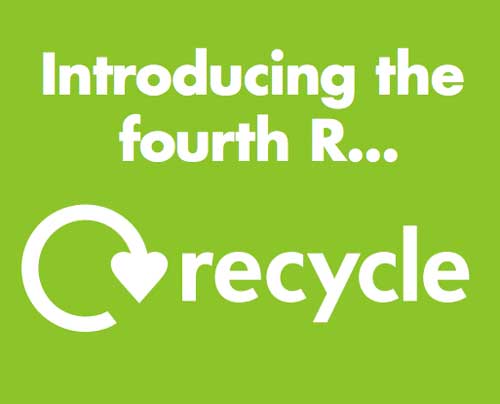Grainne McIntyre, consultant, lives locally and reflects on what might help Dunbar become a Zero Waste Town. This is the fourth of 5 case studies from across the globe

Arguably, Flanders has one of the best recycling and prevention programmes in Europe. The Flemish region is one 6 in Belgium, with a population of 6.2m spread across 308 municipalities. It claims one of the highest waste diversion rates in Europe, with around ¾ of all household waste reused, recycled, or composted.
While each region controls environment policies, waste management is devolved to the municipality. However almost all of them have grouped themselves into associations, and there are 27 inter-municipal waste management associations. There is not a single one size fits all solution. Most of the cities belong to local authority partnerships and run waste services in collaboration, but there are private or public companies, and a few areas operate independently, without an association. Collection systems also vary among associations with a combination of kerbside collections, bring bank schemes, on-street containers, and packaging take-back schemes.
A few things stand out. For a start it looks like “recycling parks” (the equivalent of our recycling centres) may be working quite hard, with 50% of all residential waste is being processed through them, which appears to account for otherwise similar costs of management. This opens up the possibility that we may need to encourage more people locally to actively use local bring bank services. Do you know where your nearest one is?
On the organics side a composting organization, VLACO, was setup on a nonprofit basis in association with OVAM (the regional waste agency), the aforementioned municipal waste associations, private compost producers, and some independent municipalities. While the early experiences, focused on centralised solutions, they also produced poor quality compost, mostly down to poor segregation practices. With time and separate collections of green waste (as we already do in East Lothian) this problem has been resolved.
Home composting was also promoted, which ELC still do but not as actively since Government grants were withdrawn for free composters a few years ago. By 2010, there were 35 composting plants in Flanders handling vegetable, fruit and garden wastes and 29 anaerobic digestion plants processing residential organic waste and other agricultural wastes. That is one composting plant for every 150,000 and 1 digester for every 200,000 population. Capacity-wise that suggests that East Lothian could not justify economically its own anaerobic digestion facilities, but there is one planned nearby in Edinburgh. When East Lothian starts food waste collections, it is likely that at least initially wastes will have to travel to central Scotland as local digester capacity has not yet been built and large scale composting of fruit and vegetable wastes not an option, and it is unclear right now what sort of local composting solution at a town scale would be practical.
But home composting was central to the overall strategy and helped reduce the volume of waste collected at the kerbside. This wasn’t a single and isolated promotion strategy to encourage home composting but included a blend of measures. Charges for the collection of organic materials were identified separately, proactive education and communication campaigns were conducted, and there were demonstrations at local schools and at community compost plants. In higher density areas community compost plants are employed, basically bring facilities with larger communal compost collection bins. There was until recently a local “compost masters” programme. In Flanders there were an astonishing 2,500 active master composters, which is one for every 2,400 population. Today something like 34 percent of the population are composting at home. Could Dunbar and district emulate that? It doesn’t sound too challenging.
While a lot of the architecture of the Flemish waste prevention and reduction programme is top down, with enabling legislation governing waste creation, deconstruction (as opposed to demolition) and process redesign, there’s also a steady flow of resources and support flowing to the relevant authorities for local initiatives and publicity. One such initiative is called “green events”. The zero waste assessment and guide has an online tool to help organisers calculate the “ecological footprint” of their events, and provide practical advice on steps to reduce waste. Also, the regional authority maintains a directory of reusable tableware for events and parties. Even tap water is promoted instead of bottled, bulk purchasing, and active discouragement of unnecessary packaging and disposable carrier bags. And for the home, “No Thank You” junk mail stickers are available. There seems to be a rich repertoire of tried and tested tools, which do not have a high price tag. Is this something we can do here?
